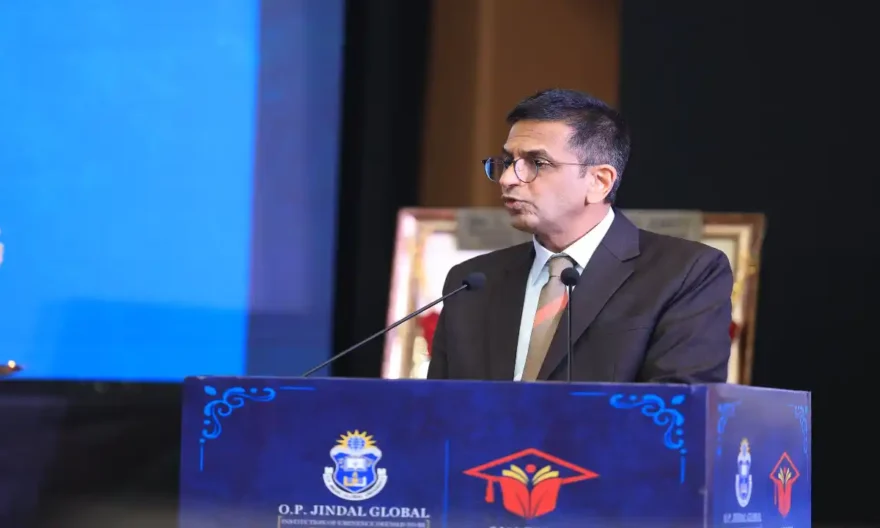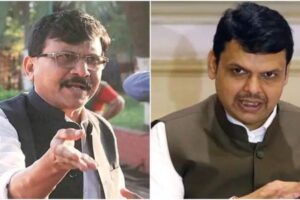
The Chief Justice of India Justice DY Chandrachud said, that we must reject every form of elite understanding of the democratic process which we keep hearing constantly that only educated are the better decision maker, but uneducated shown tremendous political acumen…the Electoral democracy has been an agent of ways of change at the villages…marginalized social groups in Panchayat has given them power to shape their own destinies.
CJI D.Y. Chandrachud, on Friday delivered the 8th Dr L.M. Singhvi Memorial Lecture hosted by the OP Jindal Global University (JGU) on the theme ‘Universal Adult Franchise: Translating India’s Political Transformation into a Social Transformation’.
The lecture commemorated the life and work of diplomat, jurist, lawyer and Parliamentarian, L.M. Singhvi (1931-2007).
Justice Chandrachud said, “In India, we find a historic social system in which power was concentrated in the hands of the upper class of the society. The rights which we now consider as universal were not universal all the time. They were denied to the oppressed. This was the norm across the world. Those who did not hold power were subjected to several levels of oppression against this power hegemony.
“Unfortunately, the exercise of democracy was used to retain power by the few, the right to vote was controlled and exercised by only those individuals who had already succeeded in the society because of their social power and cultural capital. For instance, the right to vote was exercised only by those who had certain properties or educational institutions or qualifications which were the result of not their individual effort, but were a reflection of the influence and hegemony their communities had on society. As a result, the idea of democracy itself was controlled by the elites of the society. Voting rights were denied to women and members of the marginalised communities because the elite did not want to share power with them.”
“When the negotiations to give rights to Indians and to draft the Constitution were happening in the 20th century, Indian leaders such as Dr B.R. Ambedkar led a strong demand that the concept of free India cannot happen without giving universal adult franchise. The marginalised communities had to struggle every inch to claim equal rights. Therefore, the idea of a universal adult franchise is not just a political idea, it’s a social idea and vision at its core. The introduction of universal adult franchise was truly a revolutionary idea at the time when such a right had recently been extended to women, people of colour, working class in supposedly mature western democracies.
“In this regard, our Constitution is a feminist document as well as an egalitarian and socially transformative document. It was a break from the colonial and pre-colonial legacy. The boldest move adopted by the Indian Constitution that was a product of Indian imagination. Universal adult franchise was a solid determination of India’s founding leaders to create a democratic state. Universal adult franchise helped establish a sense of belonging and responsibility among citizens as equal stake holders in the country’s progress. The Indian experiment with the universal adult franchise contradicts all myths against it. Therefore, we must reject every form of elite understanding of the democratic process which we keep hearing constantly that only educated are better decision makers,” he said.
The CJI added how Indian social leaders such as Jyotiba and Savitribai Phule, coming from the marginalised communities, demanded equal citizenship for the oppressed and started initiatives that could educate the masses about their rights.
He spoke about the idea of universal adult franchise (UAF) which was deliberated and included in the Constitutional discourse, leading to the drafting of India’s Constitution, as well as how the idea of Panchayati Raj along with UAF led to the deepening of India’s democracy.





